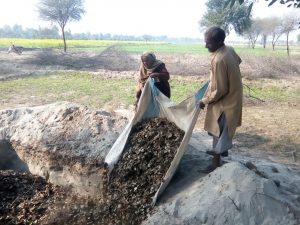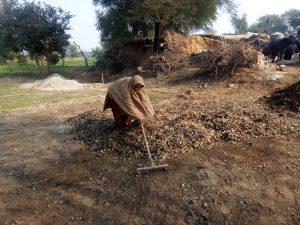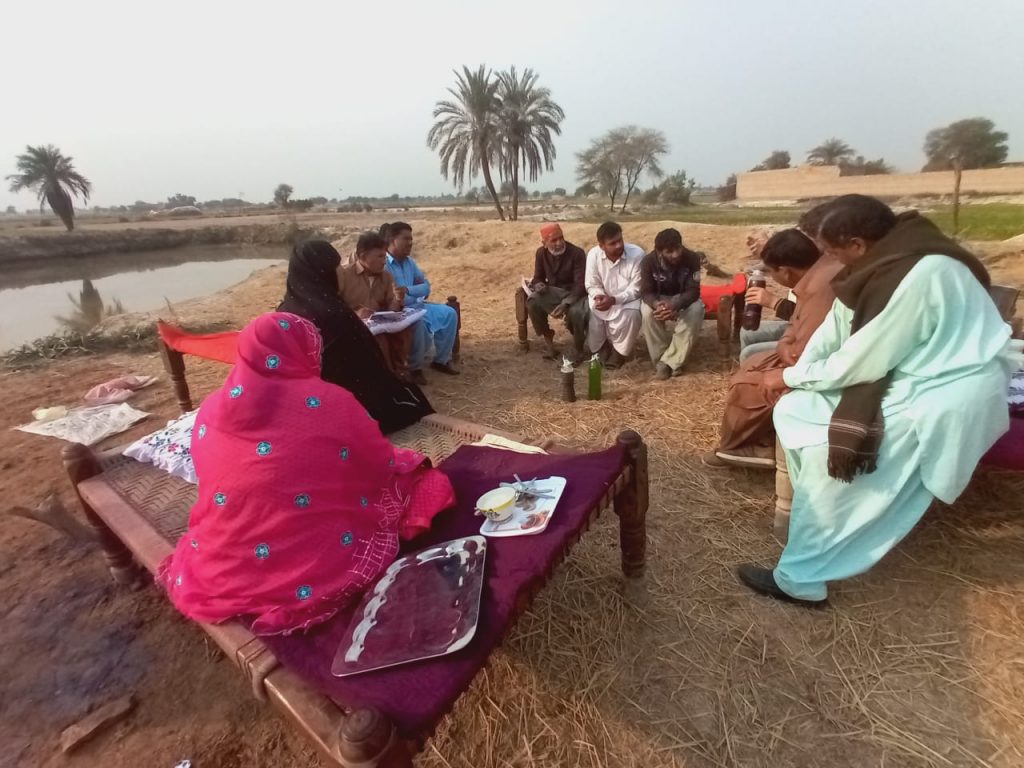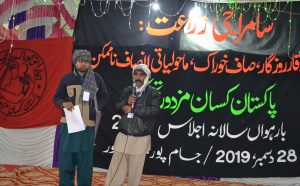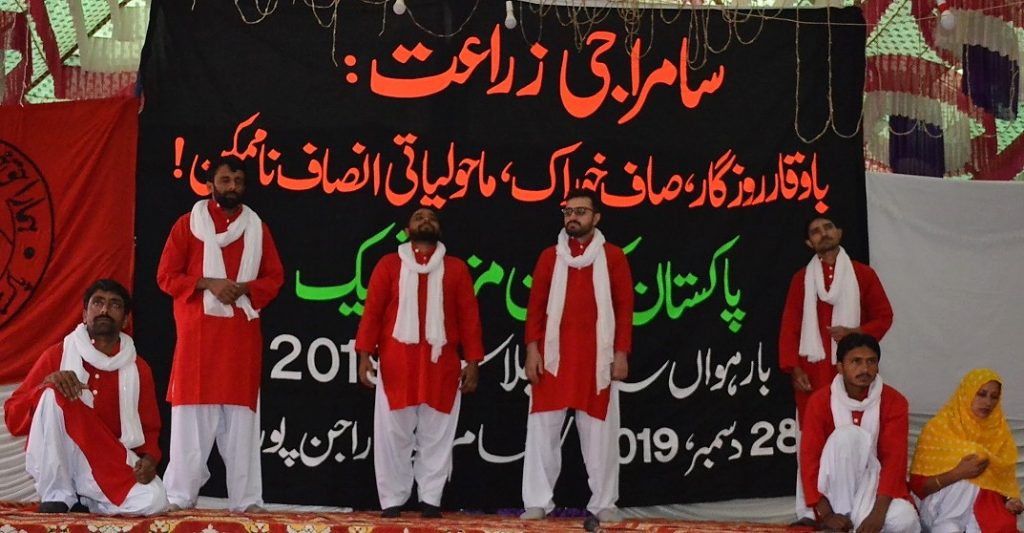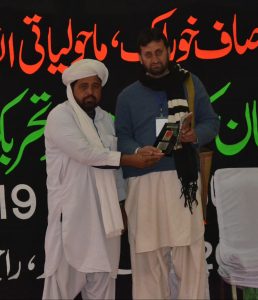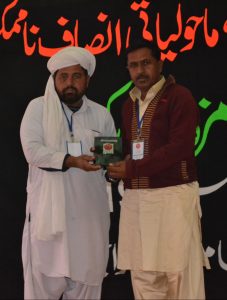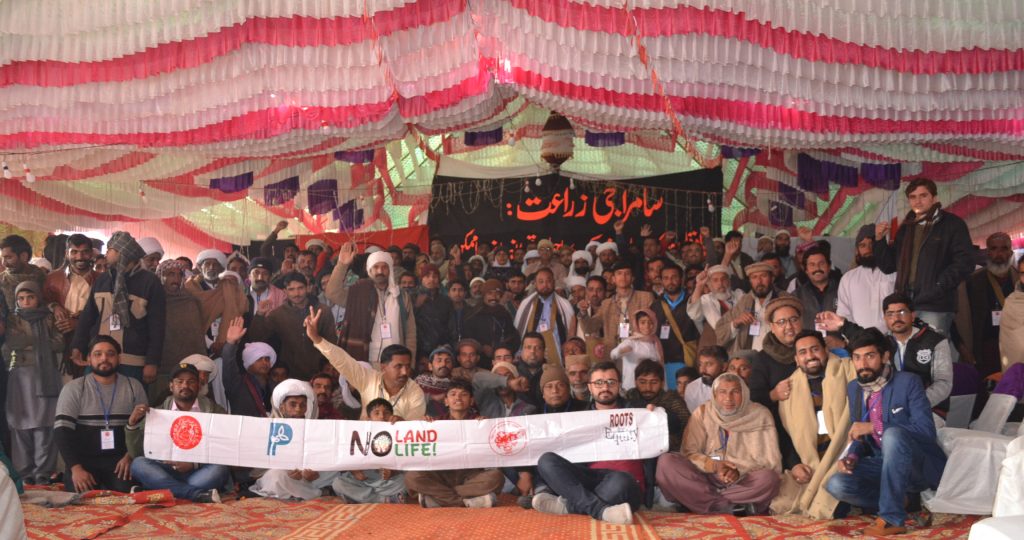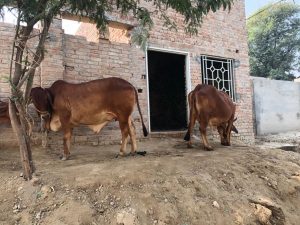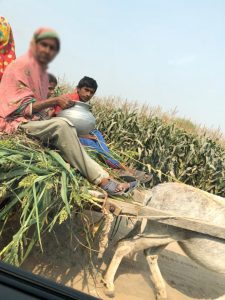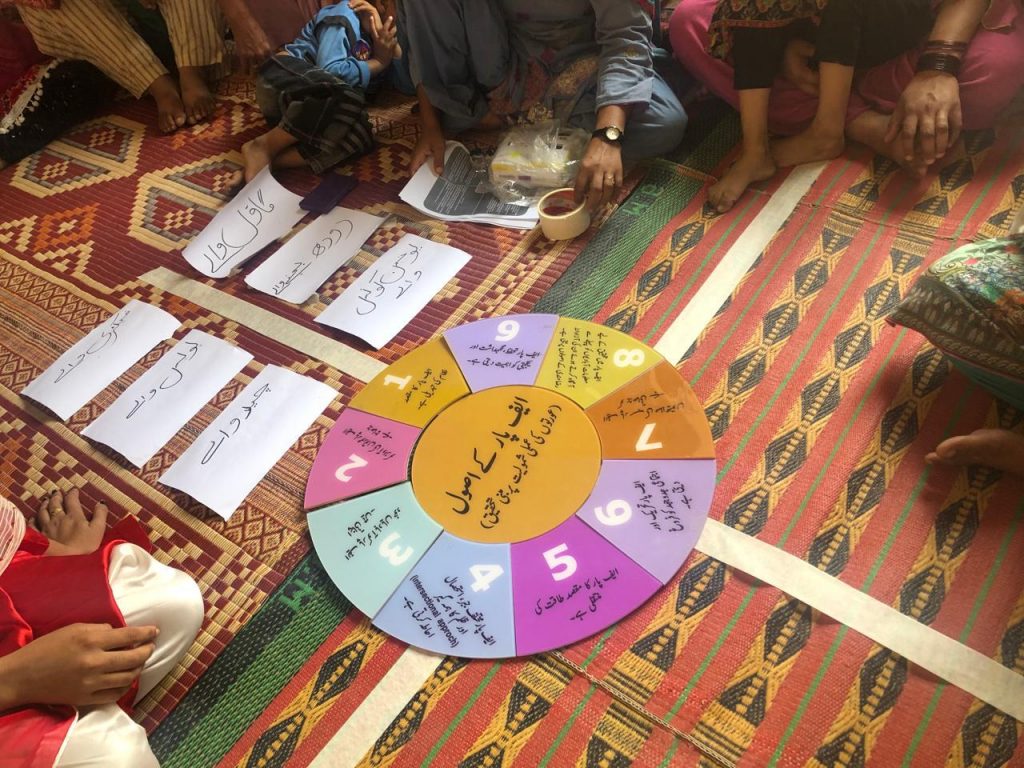Pakistan Kissan Mazdoor Tehreek (PKMT) has established a Farmers Cooperative and named it Jazba. Jazba has enlisted various farmers to further agro ecology-based farms in seven districts spread over three provinces of Pakistan with the collaboration between various actors, that include mass-based farmers’ organizations, non-government organizations, academia and consumer groups.
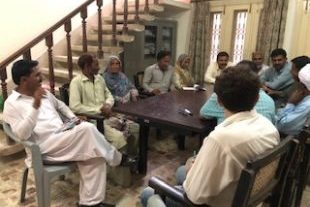 Jazba aims to upscale and strengthen agro ecology and to build technical and social alliance between various actors such as farmers movements, trade unions, women’s groups, scientists and consumers to advocate for agro ecology and food sovereignty and to bring out the strength of agroecology as a science, as a movement and as a practice, especially in face of corporate hegemony, which is detrimental to farmers self-sufficiency, health and environment.
Jazba aims to upscale and strengthen agro ecology and to build technical and social alliance between various actors such as farmers movements, trade unions, women’s groups, scientists and consumers to advocate for agro ecology and food sovereignty and to bring out the strength of agroecology as a science, as a movement and as a practice, especially in face of corporate hegemony, which is detrimental to farmers self-sufficiency, health and environment.
No doubt the collaboration is more of a political response to the threats being faced by society at large, but most importantly the marginalized especially landless and small farmers, women farmers and general public.The collaboration is also helping in linking farmers with consumer markets as well.
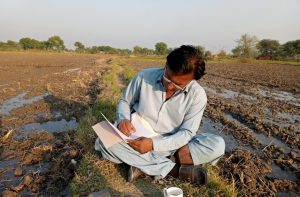 A foundation stone of Jazba is to promote safe, nutritious and healthy food for all. The extensive use of chemicals in corporate farming based on use of hybrid and genetically modified seeds, toxic pesticides and chemical fertilizers has severely impacted the health of all living things as well has been a cause for massive destruction of biodiversity.
A foundation stone of Jazba is to promote safe, nutritious and healthy food for all. The extensive use of chemicals in corporate farming based on use of hybrid and genetically modified seeds, toxic pesticides and chemical fertilizers has severely impacted the health of all living things as well has been a cause for massive destruction of biodiversity.
Of the 12 agro ecological farms, six are in Sindh,two in Punjab and four in Khyber Pakhtunkhwa.
Every farm consists of one acre of land. Four of the 12 agro ecology farm, four are managed by women. Presence of women-led farms is an entirely new experience and will be a model for rural women’s empowerment.
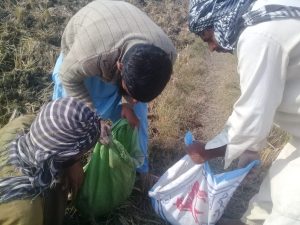 Each farmer has only used natural fertilizers from animal dung and green compost. Six farmers have already initiated making compost on the land; the other five are preparing land but has been postponed due to rains in December 2019 and January 2020. Formal initiation of the 12 farms was initiated with wheat sowing season.An initial training for preparing biological pesticides was given early in the project.
Each farmer has only used natural fertilizers from animal dung and green compost. Six farmers have already initiated making compost on the land; the other five are preparing land but has been postponed due to rains in December 2019 and January 2020. Formal initiation of the 12 farms was initiated with wheat sowing season.An initial training for preparing biological pesticides was given early in the project.
PKMT and its partners will launch a campaign to create greater awareness of agro ecological practices, its economic and social benefits and to motivate other farmers and groups to engage in agroecology.


